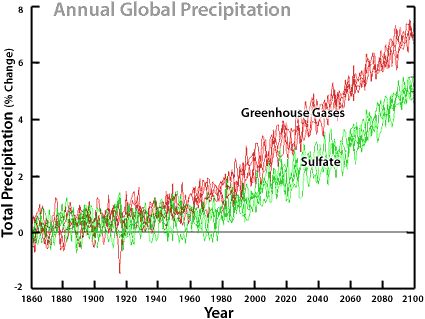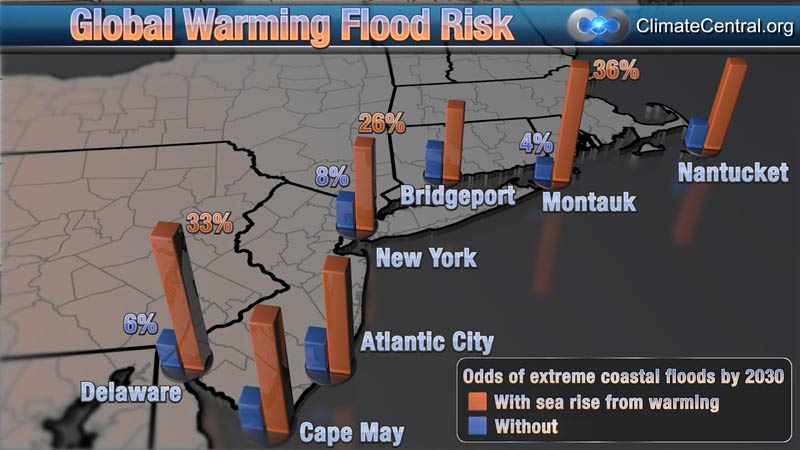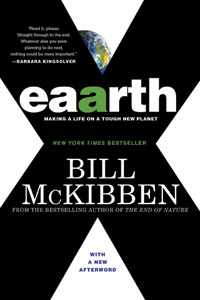
For my class presentation I was
assigned the topic of flooding and how it has been affected due to global
warming. Also, if the flooding has increased or become more severe in the years
following the publishing of the McKibben’s novel
Eaarth. The amount of rainfall
has been increasing over the past years, due to the atmosphere being warmer
than it was previously. This increase in temperature allows for more moisture
to remain in the air, thus letting it move to new locations where
it will
release of the rain in one spot. If the temperature continues to increase as it
has been, the amount of rainfall will also increase. Over the years, evidence
of the increase in such intense rainfall has been quite clear.

I was lucky enough to discover that a huge
flood had taken place in December of 2015, (about a month ago) in Northern
England. This is just the most recent extreme flood, and was caused due to an
abnormal amount of heavy rainfall. There is
dramatic footage of the aftermath
of the event, captured by a drone. This is just one example of the increased
flooding that has occurred across the globe.

The amount of rainfall and its
locations has drastically changed over the past ten years. Many areas that are
not accustomed to high amounts of rain are now receiving more than can be
removed. I even have a personal experience with flooding and the problems it
poses. My hometown was flooded about two summers ago, resulting in thousands of
dollars in damage. People were kayaking down the streets and cars were
abandoned in the deep waters. The weeks following the flood, consisted of many
people moving items ruined by the flood onto their lawns for the garbage man to
pick up. This yet again, is such a minor event in the scale of how much
flooding, and the damages it creates have increased over the past years.

The
predictions being made for futureflooding is extremely alarming. Many places near
coastal areas and islands will
probably be completely submerged underwater, along with the community and
people who live there. This problem will increase even more as the amount of severe
storms escalates to an all-time high. Unfortunately, with the increasing
knowledge and data to back up the increased rainfall levels, there are still
doubters making the solution to this problem almost impossible.
 Comfortably Unaware by Richard Oppenlander was a very
eye-opening read for me. The main concept behind this novel is that the foods
making up our diets are actually harmful to the environment. Personally,
I thought this was a very interesting take on the subject of diets due to the
fact that it is not about the health of the person but the health of the
environment. When people buy food they usually are not thinking about how it
affects the environment. No one realizes the true cost of the items they buy,
most specifically food.
Comfortably Unaware by Richard Oppenlander was a very
eye-opening read for me. The main concept behind this novel is that the foods
making up our diets are actually harmful to the environment. Personally,
I thought this was a very interesting take on the subject of diets due to the
fact that it is not about the health of the person but the health of the
environment. When people buy food they usually are not thinking about how it
affects the environment. No one realizes the true cost of the items they buy,
most specifically food.














